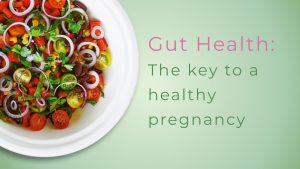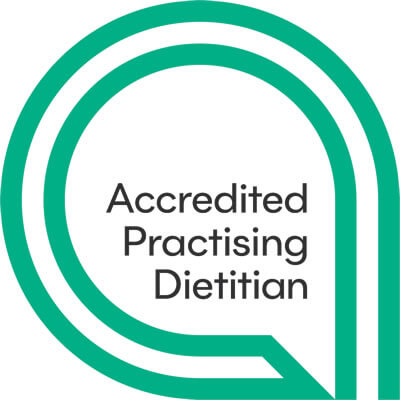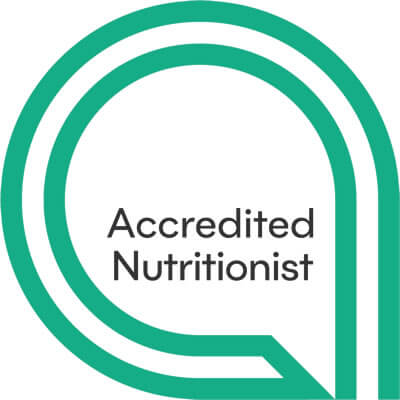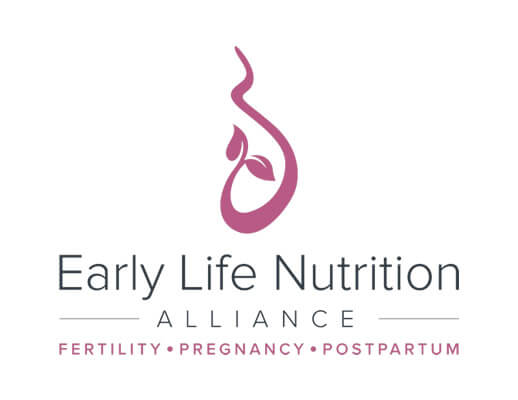Fuelling your Baby Bump
Welcome to the second and third trimester of pregnancy. These trimesters are often marked by a growing excitement as you experience less nausea and start to feel more connected to your baby. Your baby will be growing rapidly now, building bone, muscle and fat stores in preparation for birth. Your nutrition and gut health plays a significant role in supporting this development and laying the foundation for your baby’s immunity.
Nutritional Advice for the Second and Third Trimester
What you eat will impact both your baby and your own health with recent studies showing a strong connection between diet quality and balance and reduced pregnancy complications such as preterm birth, high blood pressure, and preeclampsia.
Your requirements are increased over this period to meet your baby’s increased demands while making sure you don’t develop nutrient gaps. Bub will take all it needs from your stores to thrive so a key focus is to ensure you are getting enough so you aren’t nutritionally depleted once your baby is born.
The reality in Australia is that although more than 60% of mums-to-be believed they were eating enough of the right foods, less than 1 % of pregnant women actually met the recommended nutrient reference values for the key pregnancy nutrients.
Further Reading:
Adherence to ADG During Pregnancy
Key Nutrients Needed in the Second & Third Trimester
Iron
Your baby’s rapid growth increases their oxygen needs. Your blood volume increases simultaneously to both of you. As a result, iron requirements are nine times greater than pre-pregnancy to ensure sufficient red blood cell production and maintain proper oxygen delivery to you and bub.
If iron intake falls short during this crucial period, you risk developing iron-deficiency anaemia which can leave you fatigued and weak, and can reduce oxygen and nutrition to your baby. The ideal scenario is to check your iron stores before or at least early in your pregnancy to make better food choices early on and supplement adequately if needed. In some cases, unresolved low iron stores will be treated with an iron infusion.
In the final 10 weeks of pregnancy, your baby builds their iron reserves so they have enough for healthy development during the first 6 months of life after birth.
Good Sources of Iron Include:
- Cooked lean meats (beef, pork, chicken)
- Tofu
- Eggs
- Fish
- Beans and lentils
- Fortified breads and breakfast cereals
- Dark-green leafy veg (spinach, broccoli)
Iron absorption from animal products can be up to 10 times higher than plant sources. Simple ways to enhance iron absorption from your food include:
- Cooking iron-rich plant sources
- Combining plant and animal iron-rich foods at meals
- Eating iron-rich foods with vitamin-C rich foods
- Limiting drinks high in tannins (tea and coffee) with your iron-rich meals
Calcium
Calcium is the major building block for healthy bones and teeth. It also plays a crucial role in the functioning of muscles, nerves, and the circulatory system, improving blood clotting abilities and regulating heart rhythms. During your second and third trimesters, calcium requirements increase as your baby’s bone development peaks in the third trimester. Calcium is super important for mums-to-be to maintain your own bone health while still providing for your baby’s increased needs. Not consuming the recommended 3 serves of calcium rich foods daily to meet the increased requirements will deplete your own stores, placing you at risk for bone loss during pregnancy and osteoporosis later in life. Getting enough calcium has also been associated with decreased risk of pre-eclampsia and high blood pressure in pregnancy.
Good sources of calcium include:
- Dairy products (milk, yoghurt, cheese)
- Soy milk (unsweetened and fortified)
- Tofu
- Canned fish with bones (Sardines, tuna and salmon)
- Nuts, particularly almonds
- Kefir
- Almond milk (unsweetened and fortified)
If you struggle with meeting the recommended serves, a combination of calcium-rich food and quality calcium supplements is recommended. Please reach out to get personalised and evidence-based advice with targeted supplementation to ensure you are not depleted.
Vitamin D
Vitamin D is critical throughout pregnancy for both mum and bub but particularly during the second and third trimesters, when your baby’s growth accelerates. Vitamin D is vital for enhancing calcium absorption from food and plays a role in maintaining muscle and bone strength. Vitamin D also acts as an immunomodulator and is crucial for a healthy and strong immune system. Deficiency has been associated with auto-immune conditions and allergies. Adequate vitamin D levels has also been shown to help prevent complications such as preeclampsia, gestational diabetes and low birth weight.
Read the Study on Effects of vitamin D levels during pregnancy on prematurity:
https://www.ncbi.nlm.nih.gov/pmc/articles/PMC10910675/
The body primarily synthesises vitamin D from skin exposure to sunlight, however, factors such as skin type, the amount of skin exposed, and weather conditions can significantly impact this natural production. In Australia, despite being sunny for the majority of the year, many of us don’t spend enough time in the sun. The majority of us are more indoors due to work commitments and the reality of sun safety. When we do go into the sun, we lather on sunscreen which inhibits vitamin D absorption.
There are also very few food sources that provide good levels of vitamin D.
Good sources of Vitamin D include:
- Oily fish (such as salmon, mackerel & sardines)
- Fortified milk products
- Eggs
- Mushrooms
Vitamin D supplementation is therefore recommended for all pregnant women to meet both their and their growing bub’s needs. Taking a vitamin D supplement ensures that both you and your baby have enough of this essential nutrient to support healthy bones and immunity while reducing the risk of pregnancy complications.
Omega-3 (DHA) Fatty Acids
During the second and third trimesters of your pregnancy, the intake of omega-3 fatty acids, particularly DHA (Docosahexaenoic acid) and EPA (Eicosapentaenoic acid), becomes increasingly important. Omega-3s are essential for the healthy development of your baby's brain and retina, acting as fundamental building blocks that support cognitive and visual growth. Omega 3 fatty acids are important for immunity and adequate intake during the second and third trimester is associated with a reduction in development of allergic disease. Supplementing omega 3 during pregnancy and lactation, has been shown to reduce the risk of infant food allergies.
These Omega 3 fats are not only vital for your baby's development but also offers significant health benefits to you during pregnancy. Studies have shown that increased intake of omega-3s, including EPA and DHA, can help prevent pre-term labour and delivery, lower the risk of preeclampsia, and potentially increase your baby’s birth weight. Additionally, maintaining adequate levels of omega-3s may reduce your risk of depression during and after pregnancy. DHA supplementation has been associated with improved mood during late pregnancy and early postpartum.
Read the 2020 Review on The efficacy and safety of omega-3 fatty acids on depressive symptoms in perinatal women
https://www.nature.com/articles/s41398-020-00886-3
Omega 3’s are essential fats meaning the body does not produce these fatty acids and we must obtain them from the food we eat and supplements.
Good sources of Omega 3 include:
- Fish, particularly oily fish (Salmon, trout, herring, sardines, anchovies)
- Seafood
- Omega eggs
- Chia seeds, walnuts, Brazil nuts
It is recommended that we eat 2-3 serves of omega-rich food every week. Supplementation of Omega 3 fatty acids (DHA and EPA) is recommended if you are unable or choose not to eat adequate fish and seafood. Quality supplements are either fish, seafood or algae based (vegan or vegetarian options).
At Simple Steps Nutrition we offer Omega 3 testing for pregnant mums to understand your levels and ensure supplementation is adequate to meet your needs. Please reach out to assess your levels and receive personalised supplementation guidance.
Food variety during your Second and Third trimester
Eating a variety of safe foods during pregnancy, with a focus on plant-rich foods will help to improve your gut health which has a vital role to play in your immune health, hormone regulation and mental health. During these last 2 trimesters, eating a variety of tastes has been associated with improving bub’s acceptance of different foods when you start introducing solid foods. Also, eating all the common food allergens throughout your pregnancy is important for your growing bub’s immunity and reducing the risk of developing food allergies. Unless you have a confirmed food allergy or intolerance, or a specific preference, please continue to eat dairy foods, soy, wheat, fish, seafood, peanuts, tree nuts and sesame regularly.
Customised Nutrition Plans for Thriving Pregnancies
Focusing on a nutrition plan that provides you with all the essential vitamins, minerals, and nutrients during the second and third trimesters is a fantastic opportunity for you to improve your overall health and mental well-being while crucially, supporting the vital development of your baby. Making better choices to include more nutrient dense foods will lay the foundation for your baby’s robust skeletal structure, cognitive development, and long-term well-being.
As you continue on this transformative journey, remember that you're not navigating it alone. If you have any concerns or need tailored nutritional advice, don't hesitate to reach out. At Simple Steps Nutrition, we are committed to supporting you at every step of your journey through motherhood with customised nutrition plans that cater to your unique needs. Schedule an appointment with our dietitians today, and take a proactive step towards a healthy and stress-less pregnancy experience for both you and your baby.








